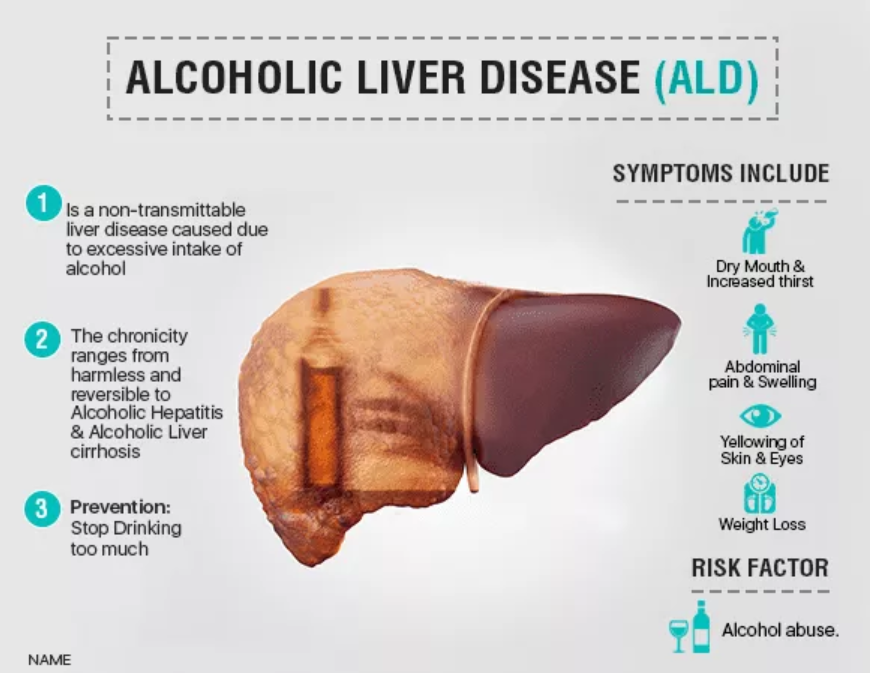
What is Alcoholic Liver Disease?
Alcoholic Liver Disease (ALD) is a condition caused due to excessive intake of Alcohol. In such cases, liver fails to produce proteins or filter Toxins out of the blood due to scarred liver tissues. The onset of this condition is characterized by a fatty liver, which later progress to alcoholic Hepatitis, and finally into Alcoholic Cirrhosis.
What are the Symptoms of Alcoholic Liver Disease ?
Early symptoms include Fatigue, loss of Energy, loss of Appetite, weight loss, Nausea, pain in abdomen, Redness on the Palms etc. However, as the condition worsens, symptoms may include:
- Building up of fluids in the Abdomen (Ascites)
- Yellowing of the Skin or Eyes (Jaundice)
- Spider-like appearance of Blood vessels on the skin
- Chest Swelling and Shrinking of the Testicles (in men)
- Easy Bruising and Bleeding
- Pale Stool
How is ALD diagnosed ?
The severity of ALD is measured using Maddrey Index and ranges from relatively harmless and treatable fatty liver disease to alcoholic hepatitis to alcoholic liver cirrhosis. Medical examination is required for those with a history of drinking problems and the diagnosis can show enlargement of liver, portal hypertension, development of fluid in the abdomen, high blood sugar levels, modest elevation of liver enzymes etc.
What is the treatment?
In severe cases of ALD, the mortality rate 50% within 30 days of onset. Maddery Index is used to predict prognosis using the formula: [4.6 x (PT test – control)] + S. Bilirubin in mg/dl. If the score is >32, it implies a poor prognosis and the patient has to be considered for steroid (Glucocorticoid) treatment. Other drugs used in such cases are pantoxiphylline, propylthiouracil, etc. Once alcoholic cirrhosis reaches the final stage, a liver transplant may be needed. Book your appointment with one of the best Liver transplant surgeons in India, Dr. Vivek Vij.



